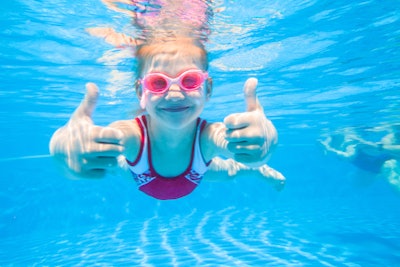
The coronavirus pandemic and the social changes it has brought on have left many people wondering how their daily lives and routines will be affected. On one hand, experts have advised people to practice social distancing and stay at home as much as possible. On the other hand, medical professionals recommend exercising regularly, which has been proven to reduce stress and boost the immune system.
Once people start going back to their normal lives outside of their homes, they will want to get back into their routines such as going to the gym and exercising. However, even after the period of social distancing is more relaxed, the coronavirus will likely still be spreading to a certain extent, and people will want to take extra precautions for their health and safety. One of the safest forms of exercise will be swimming, as the Centers for Disease Control and Prevention has said that proper disinfection of pools and hot tubs should remove the virus.
“While sharing equipment and being close to other people may increase your exposure to the coronavirus, properly treated swimming pools are better protected against all viruses because they are continuously being disinfected and are regularly dosed with chlorine to kill pathogens in the water,” according to Steve Berens, CEO of Clear Comfort, a company that uses advanced oxidation to supplement chemical treatment.
According to the Health Protection Surveillance Centre, swimming is currently safe in pools with at least 1 ppm of chlorine, which has been shown to be effective against the coronavirus, even at minimal concentrations. Fortunately, almost every pool contains a chlorine residual of at least 1 ppm, which has been the CDC’s recommended minimum since long before the coronavirus outbreak. And, because the coronavirus is what is known as an “enveloped virus,” it can be killed by chlorine even more quickly and easily than other “non-enveloped viruses.”
In addition to chlorine, many public pools use additional sanitizing systems which instantly oxidize and destroy pathogens on contact in fractions of a second. These types of systems, along with chlorine and other disinfectants, make swimming pools one of the safest communal places to exercise during a viral outbreak.
Keith Williams, chief properties officer for the YMCA of Northern Colorado, believes that by taking a proactive approach, health clubs and recreation centers can minimize the risk for their members and create a safe and healthy environment for swimming and exercise.
“The health and safety of our members and our community is our top priority,” Williams says. “In addition to stepping up sanitation in exercise areas, we will also continue to use appropriate amounts of chlorine in our pools. We have taken the extra step of using AOP [advanced oxidation process] sanitation to further eliminate pathogens or contaminants lingering in the pool water. Our pools will remain safe to swim in, and our exercise facilities will remain vigilant at all times.”
With so much anxiety and confusion surrounding the coronavirus pandemic, people are becoming increasingly stressed, which is not only detrimental to their mental health but can weaken their immune systems and make them more susceptible to viruses. Lack of exercise, heightened anxiety and social isolation can present their own serious health concerns. Exercise such as swimming has been proven to reduce stress and strengthen immune systems, which could help fight off infection and improve both mental and physical health.
“Swimming in properly disinfected pools is one of the safest ways to exercise during this time,” Berens says. “Once we start continuing our normal routines again, going to your local pool may be the best way to stay healthy and active while remaining vigilant against the spread of the coronavirus.”
Zach Morris is director of customer success, Clear Comfort.











































